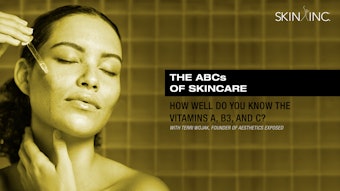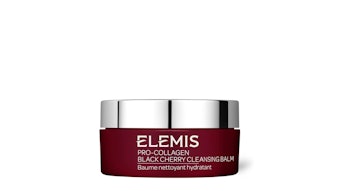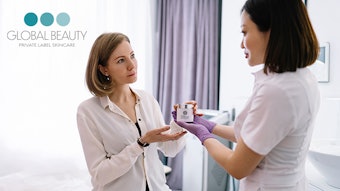Carlotta Aiken's cheeks are sprinkled with brown spots, just like her grandmother had.
"She lived to be 93," Mrs. Aiken tells Dr. Simon Yoo, who is using a laser to remove the spots, a benign skin condition called dermatosis papulosa nigra.
Mrs. Aiken, a 58-year-old art teacher, is a volunteer in a study at Northwestern University's Center for Ethnic Skin, and she is playing a small part in a growing movement.
At clinics and research centers in Chicago, New York, Washington, Detroit and Miami, dermatologists are developing better treatments for skin problems of people with dark skin. Some skin doctors concentrate their practices on blacks, Hispanics and Asians, people who previously were neglected by drug and cosmetic company research.
"I have African-American patients come to me frustrated that their previous dermatologists didn't understand their hair and scalp disorders and pigmentation problems," said Dr. Diane Jackson-Richards, who specializes in multicultural dermatology at the Henry Ford Health System in Detroit. "I treat all races of people, but I've seen over the years how I've been sought out by patients of color."
The nation's changing demographics drive the movement, said Dr. Rebat Halder, chairman of the Dermatology Department at Howard University Hospital.
"By midcentury, half the U.S. population will be of pigmented skins," Dr. Halder said. He edited the first comprehensive textbook on the dermatology of ethnic skin, which was published this year. Dermatology conferences are adding more ethnic skin sessions to their agendas, he said.
A growing number of blacks, Hispanics and Asians are entering dermatology, which also fuels the trend, said Dr. Victoria Holloway Barbosa, director of the six-year-old L'Oreal Institute for Ethnic Hair and Skin Research in Chicago.
"It's long overdue," Dr. Barbosa said of the attention.
L'Oreal, the cosmetic company, sponsors an ethnic-skin research symposium with Howard University every other year, and funds its own research.
"We do both basic science research to understand specific differences in hair and skin and also talk directly to consumers to understand their common problems," Dr. Barbosa said.
Dark skin has many advantages, she said. Pigment protects the skin from the sun's damaging effects, and some research shows that darker skin is stronger structurally as well.
But dark skin can react differently than white skin to cosmetic treatments and medications. It is more prone to discoloration after injury, and more inclined to keloids, a type of scar that can be unsightly and sometimes itchy or painful.
A doctor unfamiliar with keloids might try to cut them out, which can cause them to return larger, said Dr. Heather Woolery-Lloyd, director of ethnic skin care at the University of Miami Cosmetic Center.
"I see patients all the time who've had keloids cut out on their shoulders. The doctors didn't realize it wasn't the best choice," Dr. Woolery-Lloyd said.
Instead, she uses a series of steroid injections.
Women with dark skin sometimes develop melasma, also called "the mask of pregnancy," a darkening of the face related to hormones. Vitiligo, a disorder affecting pop star Michael Jackson, leads to white patches on the skin.
A type of scarring hair loss that starts at the crown of the head can affect black women. The Skin of Color Center at St. Luke's-Roosevelt Hospital in New York is conducting a study to compare common treatments for that type of hair loss, which used to be called "hot comb alopecia," but now is called "central centifugal cicatricial alopecia."
Researchers aren't sure of its cause. One theory holds that hair-processing techniques such as chemical relaxers and tight braiding may contribute, said Dr. Roopal Kundu, director of Northwestern University's center.
Dr. Kundu, who is Indian, said her heritage gave her "an innate curiosity about understanding the biological differences in hair, skin and nails in persons from India and also those with darker pigmented skins."
Dermatologists can improve the way they communicate with patients if they understand cultural grooming and hair styling practices, she said.
"For me, education is critical for all my patients," Dr. Kundu said. "I try to give handouts on everything I diagnose."
By Carla K. Johnson, Associated Press, November 27, 2006










